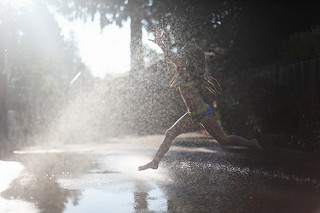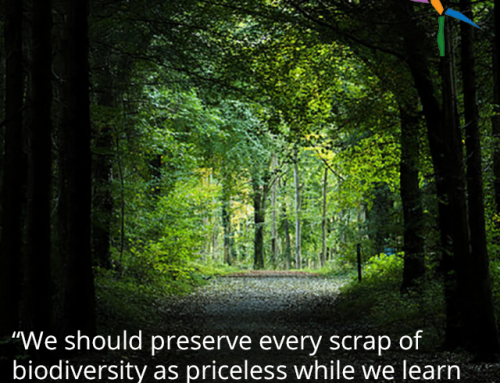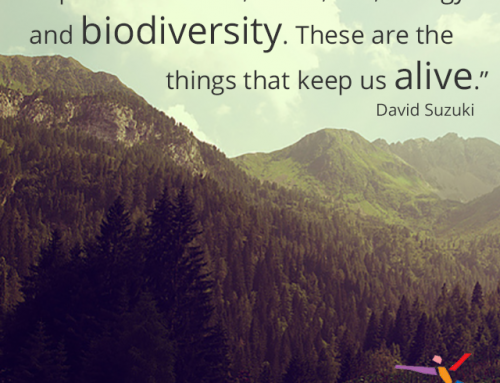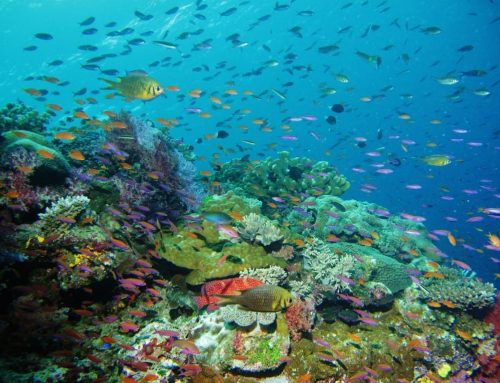In most parts of the country, summer means hotter weather. That means (for most people) using even more water than normal. We love water, too. In fact, we suspect that anybody who loves nature loves water. But even though Planet Earth is actually 2/3 water, the world is beginning to experience the start of peak water or global water shortage. Not all water can be economically and efficiently converted into potable water for drinking or water for crop growing or livestock support. That means that, eventually, water will be treated as a luxury – and in the meantime we should all start to approach treating water as a luxury. What can you do this summer to help address the increasing shortage of water in the world? Here are five ideas.
Number One: Evaluate What Your Lawn Should Really Look Like
Everybody loves a lawn of fresh grass and flowers, but not everybody should have one. The first thing to ask yourself is, “Would grass and flowers be natural to the environment that I live in?” If you live in a desert climate, such as Arizona or Nevada, the amount of water that you have to use (and have transported) to maintain a grass yard isn’t natural or environmentally sound. While every garden or lawn could use some supplemental water in addition to natural rain, if your lawn or garden is entirely dependent on you for H2O sustenance, then it’s time to consider an alternate home landscape unless you are growing your own food. If you need to run sprinklers every night to maintain your lawn, then it’s time to evaluate a different direction for your yard. This is true even in climates where the summers have traditionally been lush and full of green. As climate change settles in, you may have to forego some of the green of summer as your area of the country becomes hotter and drier. And natural rock gardens (or shell gardens, etc.) can be attractive landscaping anywhere!
Number Two: Use Community Swimming Pools Instead of Personal Ones
Another luxury that many of us have gotten used to is each house in a neighborhood having a private swimming pool. These days, this is as true in middle class or small town neighborhoods as it is in exclusive, private ones. For every house with a private pool, there are hundreds of gallons of water (not to mention chemicals) used. Think about the number of times throughout a year that you actually use your private pool. It’s possible that in some parts of the country the resources of the pool justify the existence of the pool – but in many (most) parts of the country you can save water (and money) by opting to join a pool club or use a public pool instead. Plus, instead of being isolated at home you’ll be socializing while also getting cool and wet.
Number Three: Leverage Summer Rain to Collect Rainwater
Firstly, before you even consider doing this, please make sure that rainwater collection and use is legal in your area (many states strictly prohibit it since it’s a shared resource). If, however, collecting and using rainwater is legal where you live, and rain is more abundant where you live in the summer, set up a rainwater collection system. Not only are you reducing the drain on local water supplies (and reducing your monthly water bill), but you’re probably getting yourself ready for when individual rain water collection is something that we all do regardless.
Number Four: Think Twice Before You Patronize Water Wasteful Places
We love water slides, too. They’re super fun. But pause for a moment and consider all of the waste that goes into running a massive water park. Do you really want to endorse that with your dollars? After all, how we behave with our wallets is our strongest vote about the type of world that we want to live in. There are plenty of natural ways to go out, get wet and cool down during the summer that don’t involve going to water parks (or theme parks for that matter). Hit the trails at your nearest lake. Rent a canoe or kayak and head down your local river. If you’re lucky enough to be near an ocean, hit the beaches (just be sure to follow our tips for eco-friendly beach days). Water parks are, without a doubt, fun. But they come at a huge cost to the world’s water supply.
Number Five: Pay It Forward
In America (and Canada), we’re far less aware of the global water shortage than many other places on the planet. That, of course, doesn’t mean that eventually the water shortage won’t make its way to us. We can be good global citizens and also help our own water karma by using the resources that we do have to make sure that areas of the world that desperately need clean and potable water can access it. Watercharity.org is a great way to take some of your extra summer cash and make sure that it’s used to ensure that people who need water get water. After all, there’s almost nobody in America who won’t enjoy some water luxury this summer. Let’s be aware that, for some, even having drinking water is a challenge.
Getting wet and having fun is a summer tradition, and we wouldn’t want you to miss out on it. Just be sure that when you’re splashing around this summer, you also take some time to think about the reality of the water resources available on the planet.
Have a summer water conservation tip that we missed? Tell us about it. Comment below or tell us about it on Facebook, Twitter, Pinterest or Instagram.
Photo Credit: clappstar via Flickr





